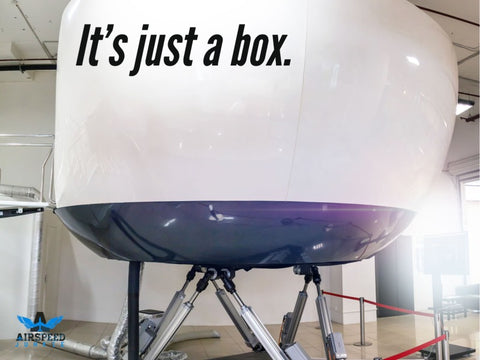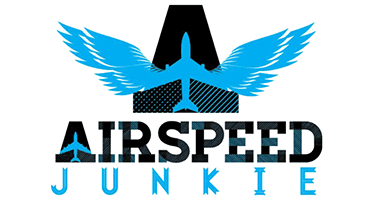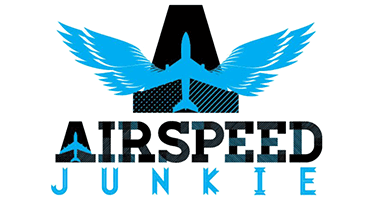Is Pilot Training Relaxing?
When I first started professional flight training in an airline flight school environment there was a certain amount of discomfort involved. Being a new hire airline pilot was kind of like taking a drink out of a firehouse because everything was new. Simulator training was more difficult then because the FAA and individual airlines never thought about the human factors involved during flight training. So in order to understand today’s current training culture, a trip back in time is super helpful. History always serves to prove how far we have evolved and gives hope to how much more we can improve a future pilot program.
Prepare for battle as a Professional Pilot
I started out in 727 flight engineer school with a aircraft manual thicker than my legs. The amount of information was enormous and someone decided that the most informed airline pilot was one who knew every nuance of the plane and that they could practically build one as well. We call this the nuts and bolts approach. Memorizing pressure limits behind metering valves was all the rage until the light of realization came on.
Airline pilots learned this, but they never had a real application for it. Who really cares what the pressure number actually is because it was never a part of the day to day operation of the aircraft after flight training was over. It was over done, pilots brains were baked with overwhelming details that were unnecessary.
This in itself was stressful and led to a real anxiety as you prepared for the check ride day. Instead of demonstrating your new knowledge in performance of the aircraft, airline pilots were weighed down with too much information. But there was also another concept at work that when piled on top of that made training a dismal event
Jeopardy in Pilot Training
When I say jeopardy, I am not referring to the game show. Training events use to be jeopardy events. Airline pilots would literally lay their license on the desk and hope that they would get it back after flight training was over. It was almost like an intense interview that had lasting life implications. Nail it and your life was altered as you went on to a new job. Fail it and you hung your head low and wondered if you would ever work again as a commercial pilot.
The jeopardy event mentality is like being brought up in a household with a violent parent. Although this seemed normal for the times, there eventually came a moment when someone stood up and said, “is this necessary?” Some courses were harder than others, some instructors were harder than others and some airplanes had more intricate systems.
Instructors
The pilot program had senior instructors in their training cadre and they were making big dollars for their experience level. You either had someone who loved the schedule and the pay (and title), or you had someone who really loved to teach. Getting a mixture of both was a bit more rare.
I remember one group of Airbus instructors that had a reputation about how tough they were and the dismally high flunk rate the program had. This somehow in a warped and twisted way elevated their image of themselves as an elite set of instructors, better than the rest of the heathens at the training center. At one point they even made a point of wearing a certain designer style of attire to set them apart.
This created another level of stress for the students but also created a pompous attitude which is not tolerated today. The focus was never really about transforming a pilots knowledge and helping them make a transition from one aircraft to another.
There is a real joy watching a pilot blossom and grow because of your time and dedication to their success. It’s called investing in people and was not really a big part of airline training history. If your story is different and you strove to be a different type of instructor then please forgive the generalization.
Pilot Program Session Times
Getting a “D” or “E” session sim time did not help matters either. Working on the back side of the clock and trying to learn and absorb new information is much more challenging when you are tired. If you were a night owl then that is great, however that was not always the case.

So when you add up the jeopardy events, the overload of information, the instructor types and training times, you come to this interesting scenario. Training isn’t mentally healthy. So change had to come and thankfully it did.
Psychological factors
Suddenly airlines started looking at factors that affected airline pilot performance and induced stress. Those stress items or even personal values affected errors in the cockpit. Errors cause issues and sometimes grow into serious mistakes.
The whole idea was to make better pilots and be more thorough in getting them prepared to recognize those mistakes. Soon subject matter became available that talked about fatigue and threat and error management. The awareness level started to rise and along with that the realization that perhaps we had way too many memory items and useless numbers in our heads.
Then along came AQP programs and that accelerated change. Suddenly things begin to relax a bit and the old school mentality of memorization began to give way to quick reference handbooks and the slowing down of procedures. (finally)

The last paradigm shift of pilot training
Currently (in the last ten years or so) a new sign showed up in the training center that more or less changed the game. It was not announced nor proclaimed as the new normal. No attention was given to it. It was almost expected that you even knew something changed, but it did.

That four letter sentence completely changes the pilot program mentality game. I am not sure if this sign is in every single training center for every carrier, but suspect the concept has been adopted.
So what does this mean? It means, you the professional pilot in training are the center of our focus and we need to create a product that helps you learn. In fact I had heard it explained in one particular recurrent as “learning has occurred” which was the goal of flight training event.
Could it be the views of training have shifted to a more retail type of experience? Could this even be true? Right now as of this writing there is a pilot shortage that basically allows pilots to literally have several offers at choice airlines. It’s kind of like buying a product on Amazon, if you choose poorly or you are not satisfied you can simply choose something else. This has given way to the dissolving of the Armani squad type of attitudes and replaced instructors that were in it for the money with pilots who really enjoy teaching.
I have a new note in my notebook that I look at when preparing for training each year. It says "consider the fact that training could actually be enjoyable". Now the game has become forcing myself to relax, which is much much better.
Solutions
Here are some simple tools that you can use to help prepare yourself for a pilot training event.
- Prepare early
- Include relax time in your daily study routine
- Take 15 blocks of study time and tell yourself in the next 15 minutes I am going to be further down the road of understanding this.
- Use fear or anxiety as a tool, make it work for you by knowing it exists
- Figure out what simulator lessons are demo's, those do not require in depth memorization, instead use familiarization.
- Elevate your image, look professional in training.
- Thoroughly understand there is a day where the light comes on and you suddenly "get it" (usually around sim #5)
- Remember that you are the customer, so the Instructor is working for you!
Perhaps you have noticed a similar example in the training process. Or if you are getting ready to take the next step in your career, maybe this has helped you. Either way feel free to add a comment to help get the next generation as much information as possible.





Don't do this at pilot training.
In case you were wondering about the term "Armani squad. This refers to a group of instructors who all wore Armani branded attire.









1 comment
James Bonton
Even though its much better I still don’t like going.